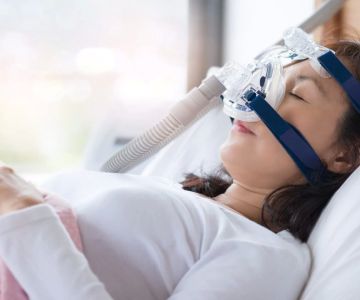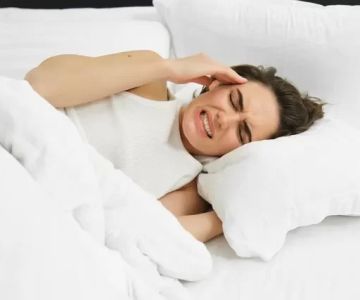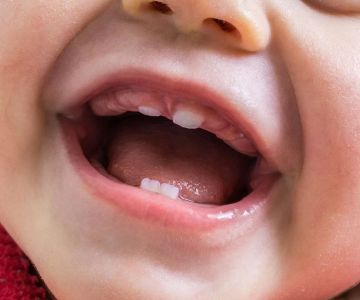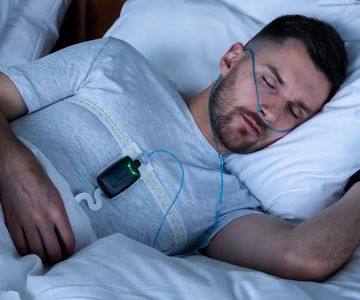How Dentists Can Address Sleep Apnea
Sleep apnea is a serious condition that can have a significant impact on your quality of life and overall health. It not only leaves you feeling exhausted despite a full night's sleep but can also lead to long-term health problems if left untreated. Dentists play a crucial role in managing sleep apnea, offering alternative treatments to the commonly known CPAP machines.
The Different Types of Sleep Apnea
There are several types of sleep apnea, including obstructive sleep apnea (OSA), the most common form, which occurs when throat muscles relax and block the airway. Central sleep apnea happens when the brain fails to send proper signals to the breathing muscles. Complex sleep apnea combines features of both obstructive and central sleep apnea. The signs and symptoms of these types can overlap, making diagnosis challenging. Common indicators include breathing pauses during sleep, gasping for air, awakening with a dry mouth, difficulty staying asleep, excessive daytime sleepiness, and difficulty concentrating.
The Risks of Untreated Sleep Apnea
According to the American Medical Association, around 30 million U.S. adults suffer from sleep apnea, but only 6 million are diagnosed. Untreated sleep apnea raises the risk of various cardiovascular issues such as high blood pressure, heart attack, heart disease, and stroke. It also causes problems for oral health, as it often forces people to breathe through the mouth, leading to dry mouth and related dental issues like tooth decay, plaque, mouth sores, gingivitis, and periodontal disease.
Treatment Options for Sleep Apnea
In extreme cases, surgery may be recommended, but most patients are treated with breathing machines. A continuous positive airway pressure (CPAP) machine is the most common and reliable method for treating obstructive sleep apnea. A bi-level positive airway pressure machine (BiPAP) and adapto servo ventilation machines (ASV) are also available, each with its own features and benefits. However, people often encounter challenges with using these machines, such as limitations in sleeping positions, discomfort with masks, and air pressure issues.
Dentists' Role in Treating Sleep Apnea
Fortunately, dentists can provide non-mechanical options for less severe forms of sleep apnea. Oral appliances called mandibular advancement devices (MAD) are common and bring the jaw forward to open the airway. Other appliances are designed to hold the tongue in place. While over-the-counter devices exist, custom-made mouthpieces by a dentist tailored to fit your mouth are the most effective. If your doctor has determined that an oral appliance could be suitable for your condition, consulting a dentist is a wise step to see if you're a candidate.
Getting an Oral Appliance and Adjustment Period
To obtain an oral appliance for obstructive sleep apnea, you'll need a sleep study to diagnose the condition. If an oral appliance is recommended by your sleep specialist, you'll need a referral to a dentist. The dentist will take an impression of your teeth or a 3D scan and send it to a manufacturer for a custom-fit device. It takes about two to four weeks to get used to wearing the appliance, and initially, it may feel odd, but with time, it becomes part of your nightly routine.
Risks and Benefits of Oral Appliance Therapy
Short-term side effects of oral appliance therapy may include increased salivation, jaw and teeth pain, dry mouth, and gum irritation. Long-term side effects are uncommon with a properly fitted appliance but can include changes in bite, teeth movement, and jaw muscle or temporomandibular joint (TMJ) issues. Regular dental check-ups are essential to monitor for any changes. The benefits of oral appliance therapy include improved symptoms of sleep apnea, deeper sleep with fewer disruptions, reduced or eliminated snoring, an alternative for those who can't use CPAP, and the convenience of being portable for travel.
Questions to Ask Your Healthcare Provider
When considering an oral appliance for sleep apnea, it's important to ask your healthcare provider questions such as the cost of the therapy, insurance coverage, the number of visits and sleep tests required, potential side effects, and the lifespan of the device. A note from Cleveland Clinic emphasizes that oral appliances can help people with obstructive sleep apnea get a better night's rest and reduce snoring. If you have trouble consistently using a CPAP machine, talk to your healthcare provider about the possibility of an oral appliance. They will recommend the option that best suits your specific symptoms and condition.
In conclusion, dentists can indeed be valuable allies in the battle against sleep apnea. They offer alternative treatments such as oral appliances that can improve sleep quality and overall health for those suffering from mild to moderate sleep apnea, especially when other traditional methods prove challenging. It's essential to have open communication with your healthcare provider to determine the most suitable treatment plan for your specific needs.






 Westgate Dental Arts
Westgate Dental Arts Coventry Family Dental
Coventry Family Dental Familia Dental
Familia Dental Dr. Daniel S. Fife, DDS
Dr. Daniel S. Fife, DDS Dentistry At Suburban Square: Michael I. Wollock, DMD
Dentistry At Suburban Square: Michael I. Wollock, DMD Comfort Care Dental
Comfort Care Dental The Importance of Oral Health Education During Pregnancy for a Healthy Pregnancy
The Importance of Oral Health Education During Pregnancy for a Healthy Pregnancy Why Skipping Dental Checkups Can Lead to Bigger Oral Health Problems
Why Skipping Dental Checkups Can Lead to Bigger Oral Health Problems Advantages of Porcelain Dental Restorations
Advantages of Porcelain Dental Restorations Best Tips for Brushing Your Teeth Properly for Healthy Gums: Essential Techniques for Oral Health
Best Tips for Brushing Your Teeth Properly for Healthy Gums: Essential Techniques for Oral Health How Can Diabetes Cause Tooth and Gum Problems? Preventing and Managing Oral Health Issues
How Can Diabetes Cause Tooth and Gum Problems? Preventing and Managing Oral Health Issues Healthy Habits for Promoting Good Oral Health and Hygiene: Tips for a Healthy Smile
Healthy Habits for Promoting Good Oral Health and Hygiene: Tips for a Healthy Smile